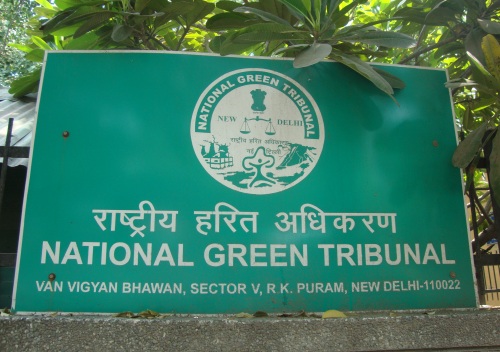By Ritwick Dutta (Posted: June 7, 2009)
Two significant ruling by the Delhi High Court in the month of April and May, 2009 delivered by Justice Ravindra Bhat has greatly helped the cause of access to Justice in India. These two judgments along with the Judgment on the functioning of the NEAA delivered by Justice A. P Shah and Justice S Muralidhar has laid down a framework for access rights for far as challenging environmental clearances are concerned.
Background:
The National Environment Appellate Authority (NEAA), a Statutory Authority to hear appeals filed against approval granted by the Government to various industrial and infrastructure projects based on Environment Impact Assessment, dismissed two appeals filed before it. The first concerned approval of the Vedanta Aluminium Smelter Plant in Jhasrsuguda, Orissa and the second, a mine approved in Goa. The first Appeal was dismissed on the ground that the petitioner, Prafull Samantray did not have the loucus standi to file the Appeal since he was not an “aggrieved person”. The second was dismissed on grounds of delay since the petitioner did not, according to the NEAA have “sufficient cause” in filing the appeal late. The Delhi high Court quashed both the orders of the National Environmental Appellate Authority. In respect of Vedanta it imposed a cost of Rs 50,000 to be paid to the petitioner. The Courts clarified on the issue as to who can file an Appeal before the NEAA and held as follows:
•“Public hearings……. are organized to elicit comments from the members of public before granting clearance to a project in order to assess the nature of environmental damage, if any, due to the likely execution of project and its impact on the rights of inhabitants and the persons who depend on that area for livelihood or otherwise. A person who participates in the public hearing, and thus in the process of decision-making, potentially becomes an aggrieved person if his grievances are not properly addressed.
•The world as we know is gravely imperiled by mankind’s collective folly. Unconcern to the environment has reached such damaging levels which threatens the very existence of life on this planet. If standing before a special tribunal, created to assess impact of projects and activities that impact, or pose potential threats to the environment, or local communities, is construed narrowly, organizations working for the betterment of the environment whether in form of NGOs or otherwise, would be effectively kept out of the discourse, that is so crucial an input in such proceedings. Such association of persons, as long as they work in the field of environment, possess a right to oppose and challenge all actions, whether of the State or private parties, that impair or potentially impair the environment.
•In cases where complaints, appeals etc. are filed bona fide by public spirited interested persons, environmental activists or other such voluntary organisations working for the betterment of the community as a whole, they are to be construed as “aggrieved persons” within the meaning of that expression under Section 11 (2) (c) of the Act (National Environment Appellate Authority Act)
•As a native American proverb goes, “We do not inherit the earth from our ancestors, we borrow it from our children”; denial of access to meaningful channels to communities who can be affected by proposed projects would only leave them remediless, on the one hand, and allow unchallenged indiscriminate drawings from the future generations’ rights with impunity, thus gravely undermining the purpose of the Act.
•The kind of disputes that the Tribunal is expected to adjudicate upon is not really a lis between the litigating parties – it is necessarily a wider one whereby the impact of the State decisions to permit/promotion a kind of project, on the local community or the environment in general has to be considered. Viewed from this perspective, and the statement of objects of the enactment, this Court is of the opinion that the Tribunal has to in each case (where appeals are preferred before it), adopt a broad and liberal, rather than narrow and cribbed approach. The latter view, however, has appealed to the Tribunal. After all when the local community or a person entitled to move an appeal approaches a Tribunal as has happened in this case, the grievance is not the impact on the immediate parties alone, but on the wider community at large. The Tribunal has to keep that in mind.
•In a case like the present where environmental clearances’ impact on local population in terms of their environmental harm, has to be assessed the approach of the tribunal especially set up for this purpose should be liberal and not “hyper technical”
The two decisions of the Delhi High Court are truely landmark. These two, along with the earlier Judgment of Justice A.P Shah and Justice Muralidhar on the functioning of the NEAA could form the guiding force for affected communities and groups who wish to challenge destructive projects approved on the basis of faulty EIA.
